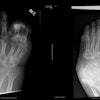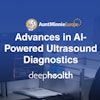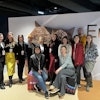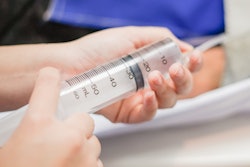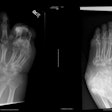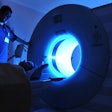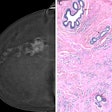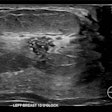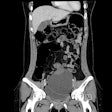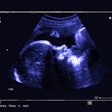
For European radiologists, it is vital to have the European Medicines Agency (EMA) based in a politically stable environment with an advanced infrastructure and governmental support. The Netherlands has close contacts with regulatory agencies in other parts of the world so overall it's positive the EMA is relocating to Amsterdam.
The EMA's work is likely to become more important in the future. Specific contrast agents may play a crucial role in personalized medicine before and during oncologic therapy. These include CT and MRI agents for evaluation of tissue perfusion and metabolism, as well as innovative tracers for nuclear medicine imaging techniques.
Furthermore, interventional radiologists play a more and more important role in image-guided local delivery of chemo- and radiation therapy. New therapeutic drugs and delivery systems have to be developed in close collaboration with the EMA for final clinical approval. This gives the European radiologist a new and more central role in cancer therapy. Therefore, the EMA must be based in a highly innovative environment, with sound financial support, to clinically test innovative ideas.
The Dutch perspective
For the Dutch radiological community, opportunities to contribute to issues related to development and application of contrast media look set to arise, for example for angiographic, CT, and MRI examinations. Many members of the Radiological Society of the Netherlands (NVvR) have expertise in the area of contrast safety, development of innovative contrast media, and careful clinical testing of new contrast agents in clinical trials.
 Dr. Hildo Lamb from the Leiden University Medical Center.
Dr. Hildo Lamb from the Leiden University Medical Center.The existing scientific infrastructure and science funding in the Netherlands will be used to maximally support the EMA. The NVvR recently decided to install a new Dutch Radiology Research Fund to support innovative radiological research. In light of the relocation of the EMA, we can imagine this new fund will support EMA activities too.
Close collaboration between the major contrast companies in Europe and large health technology companies in the Netherlands and Europe will help to harmonize development of contrast agents and image acquisition technology.
In the Netherlands, several existing institutes are preparing to support the EMA. For example, the Dutch Medicines Evaluation Board (MEB) is supported by the government with 2 million euros in extra capacity for the MEB in the coming years to warrant continuity of EMA activities. Investments are also being made in reinforcing the European network by facilitating extra training opportunities. This generates many opportunities for talented Dutch and European people to contribute to patient-centered quality control for admission and protection of high quality medical care. One of the major challenges will be to warrant sustainable healthcare by reasonable control over costs of medical therapy.
Pros and cons of Amsterdam
Amsterdam has several attractive elements to fully support the EMA. The international airport, Schiphol, is close to Amsterdam, and it is a well-developed airport with excellent facilities to support EMA personnel and visitors. For local and national economies, the new EMA location in Amsterdam offers major opportunities, particularly for hotels, commercial housing companies, and Airbnb-type of accommodation for temporary visitors.
Permanent EMA employees will reside in the Amsterdam area. Because Amsterdam is already crowded, it will be a challenge for EMA staff to obtain reasonably priced housing. On the other hand, the Amsterdam area expands to north and south Holland, including popular areas such as Haarlem, Heemstede, and Leiden, with excellent train and highway connections to Amsterdam. So the broader Amsterdam area can benefit from the new EMA location.
The NVvR is delighted and honored to support the EMA whenever possible by providing expertise and help make medical care sustainable and future-proof. After a careful selection process, two candidates were selected: Milan and Amsterdam. Ultimately, fate determined that Amsterdam was the lucky winner. The process was guided by the former Dutch Vice Premier Wouter Bos, who acted as a skillful ambassador for the Netherlands.
Dr. Hildo J. Lamb is a professor of radiology at Leiden University Medical Centre, The Netherlands, and board member for science and international affairs at the Radiological Society of the Netherlands.
The comments and observations expressed herein do not necessarily reflect the opinions of AuntMinnieEurope.com, nor should they be construed as an endorsement or admonishment of any particular vendor, analyst, industry consultant, or consulting group.
